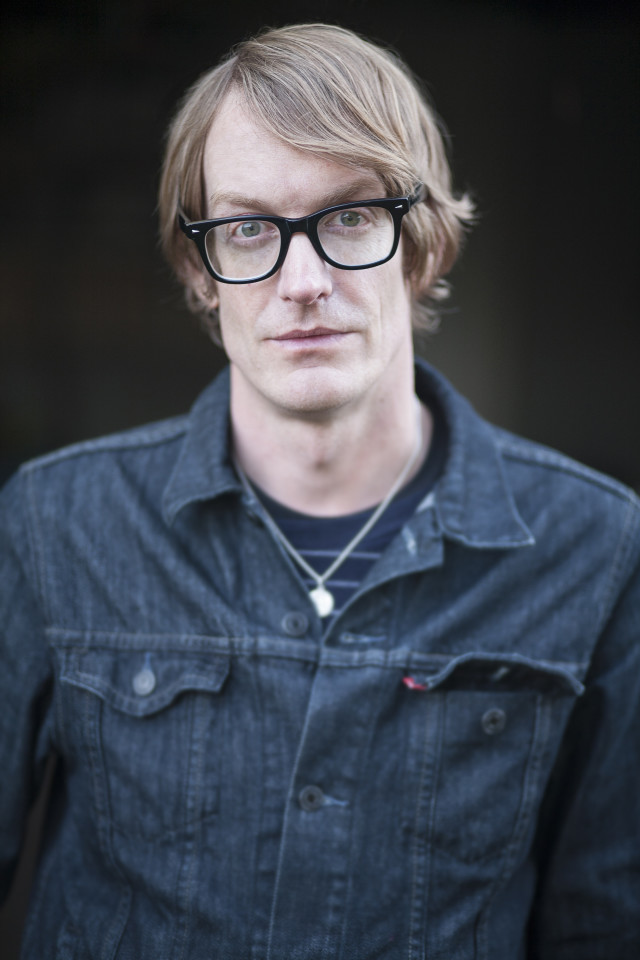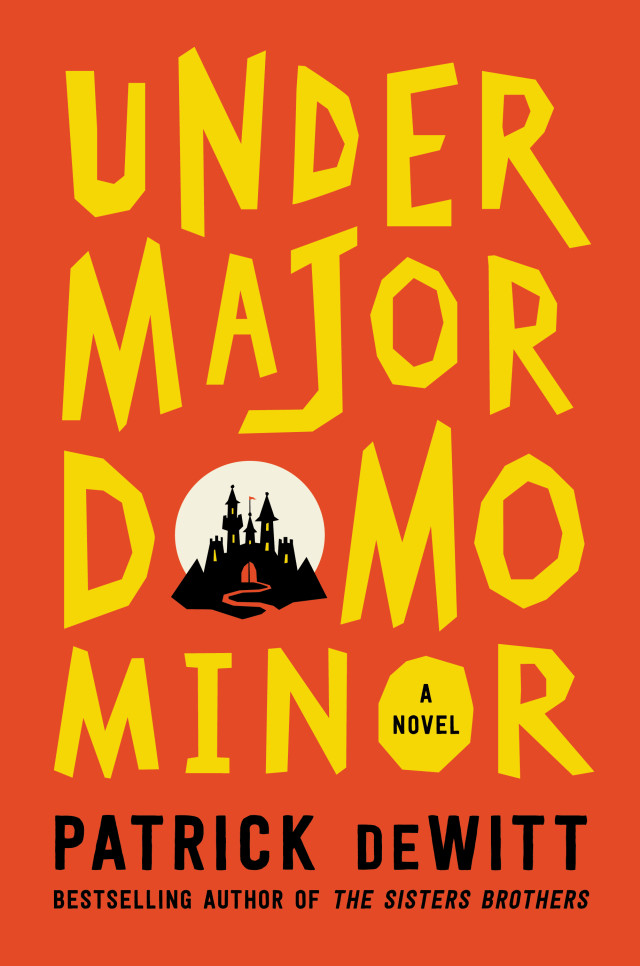Patrick deWitt vs. Europe: Even Stevens

Patrick deWitt. Photo by Danny Palmerlee.
He’s an award-winning novelist who scrapped one of his own books before it was published. He’s a Canada native now living in Portland. He’s a Western writer who’s also published a darkly comic fable, Undermajordomo Minor. We talked to Patrick deWitt about the downside of success, creating characters, and why, after a stint in Paris, he’s so happy in Portland.
The Sisters Brothers, your second novel, was a massive success, with a place on the Man Booker shortlist among its many accolades. Did its success make the follow-up more difficult?
It really did. But that phase of worrying about all those sorts of things was a phase under the umbrella of the time it took to write the novel, which was start to end about three years. There was about six months or so in the center where I was worried, wondering would I alienate all these readers that I’d amassed. I don’t want to obviously! All these awful variables came into my head and I found it quite stifling, and it was definitely slowing down the process of writing the book. But then at a certain point it just went away, and I don’t really know why it arrived and why it left. You can’t worry about the monster in the closet for the rest of your life. At a certain point it goes away, and that’s what happened here, and it was just back to work.
Yet after The Sisters Brothers, a Western novel set during the California Gold Rush, you began a book you later abandoned.
That seems to be my way. After Ablutions I wrote an entire novel and then abandoned that and then started The Sisters Brothers. I’m not sure what it says about me as a writer, but hopefully this will not be the case every time.
Weren’t you at all hampered by the fact that you’d spent time and energy on a project that would never see an audience?
[After I abandoned the second book I wrote] I remember being worried that maybe I only had the one book in me, Ablutions, and that was quite a small and personal story, and I wondered if I’d be able to go the distance, whether I was in it for the long haul or whether I’d blown my wad with one book. But the fact is that writing fiction is the only thing that I’ve had any ongoing interest in, and I knew that I could do it again, it was just a question of finding the proper characters and story to help me along.
Your newest work is Undermajordomo Minor, out this month and already being hailed by critics, with Daniel Handler in the New York Times Book Review calling it “quick and funny and thoughtful and moving and super…a terrific piece of genre writing.” But it's definitely not a Western. How would you categorize it?
It’s written in a comedy of manners style or a fable style. Though fables are meant to have morals and if this book has one I haven’t figured out what it is.
Where did it begin?
As with so many things that I’ve written, it began with reading. I was reading fables at the time to my son and then just for my own enjoyment. So that was the jumping off point, when I recognized that I could maybe write in this mode. There was something appealing about that setting beyond it being appealing as a reader, and I thought that I would like to get involved in a more hands on sense, and possibly there was a story in it, or even a book. It became a question of how I would approach it, what tone I would use, how far I would stray from the norm.
Was it liberating to have such a non-specific backdrop and fictitious location after having The Sisters Brothers set firmly in a time and place?
It’s funny because I didn’t feel terribly hampered by the time and place which were the focal point of The Sisters Brothers, but I felt hampered enough by them that this time around I did intentionally keep it geographically vague and historically vague. It’s meant to be not even necessarily of the earth. It’s very much an invention and I think it’s meant to be read as an invention, a story you would hear in front of a fire or something. This is make-believe. That is freeing, you know. It becomes a question of where the make-believe ends and the genuine human emotion begins. That balancing act was challenging for me but it was also the fun of it too.
Its main character is a thin, self-congratulatory tall tale teller called Lucy. Where did he come from?
I think that Lucy just struck me as very much a traditional fairytale protagonist. The story's beginning, which is Lucy leaving home for the big wide world, these are all terrible clichés, and I really like that. I thought, 'Well if I’m going to tip my hat to the fable or fairy tale, let’s just really tip it radically at the beginning.' It’s basically something that could have been cribbed out of any other story I was reading. It was set up in a very commonplace, traditional manner. Fleshing out Lucy took a bit of time. I had an inkling in terms of what I wanted him to look like how I wanted him to behave, but it does take a little while for the characters to get under my skin to the degree that they’re living and breathing, and there’s no real way for me to accomplish this other than to spend time with them.
Much of the book was written when you were away from Portland, living in Paris and traveling around Europe.

I did quite a lot of traveling around while I was in Paris, to Hungary and Helsinki, all for work visiting with foreign publishers. The chance to go and see all these different places definitely informed the tone of the book. I was staying in a monastery that had been built in 1604, so I was living in an older world than I’m accustomed to, and it’s very easy to romanticize that sort of thing, and I did it unabashedly when I was in Europe. I lost a book that I went to Europe to finish, but Europe gave me a book back, so it’s even stevens at this point.
Are you glad to be back in Portland? Do you feel at home here?
I don’t know if I’ve ever had that feeling have when they talk about home. When people ask me where I’m from, I usually say Canada. More and more I really do love Portland. I’ve been here six years now, and I’ve carved out a life for myself here. I’m happy here for the time. I moved here not knowing anyone, but I had an affinity for the landscape, for the weather, I love the Pacific Northwest. But then I was lucky in that it turns out there’s no end of things to do in Portland. The food’s incredible, it’s a great drinking town, and people are just charming and easygoing and civil. I found that everyone’s extremely polite which some people like to lampoon, but I quite like it.
From a dark tale about addiction (Ablutions) to a Western story about two mercenaries during the Gold Rush (The Sisters Brothers), followed by a fable of a young man who leaves his small town to go work in a strange and mysterious castle (Undermajordomo Minor). What's next?
I’m tinkering with an idea, but I don’t know if it will come to anything. It's the story of an explorer, a man on a boat who has been hired to map the world, to see if it’s flat or not. It’s his diary or his adventures, places that he stopped and the things he discovers.
Patrick deWitt reads at Broadway Books on Tuesday, July 12, at 7 p.m.
